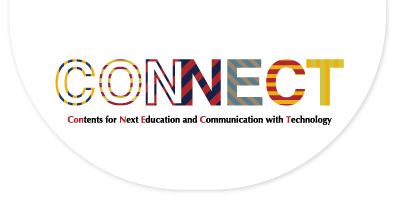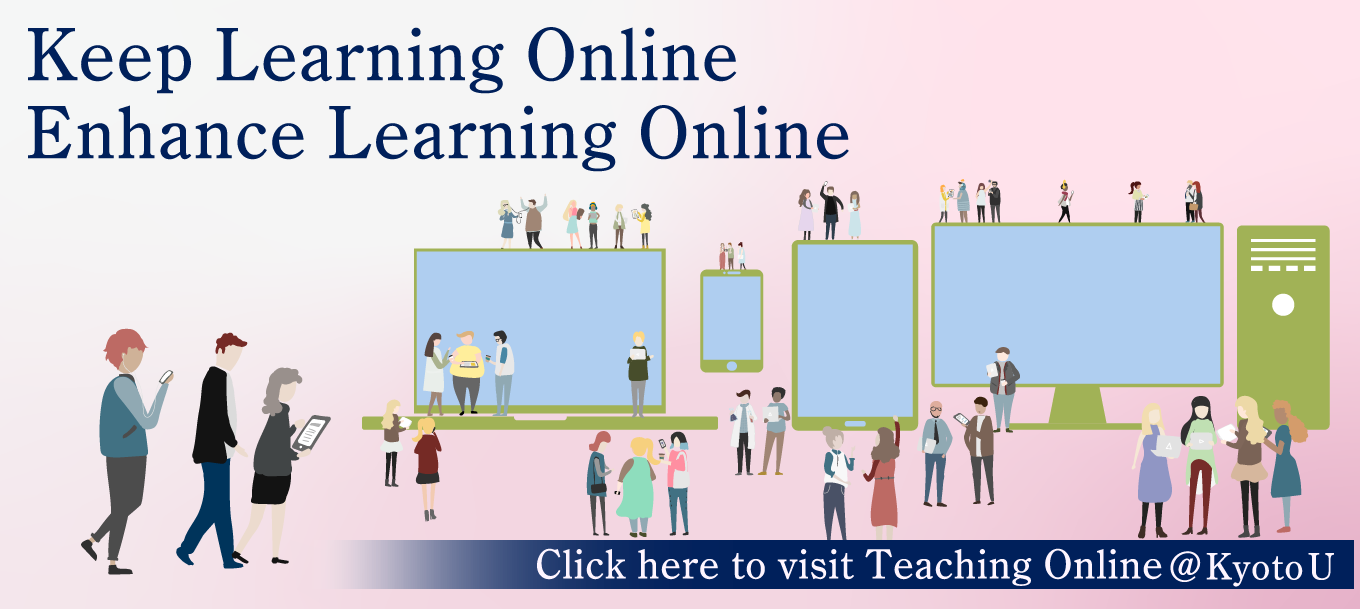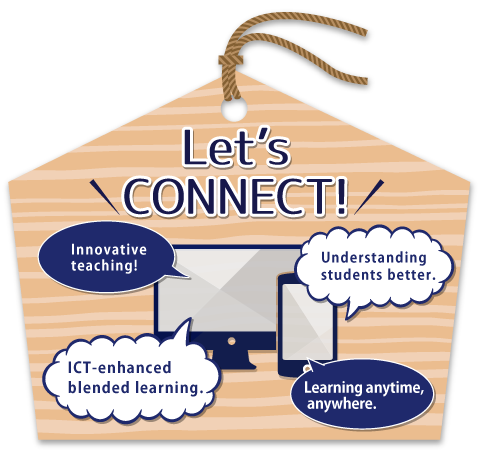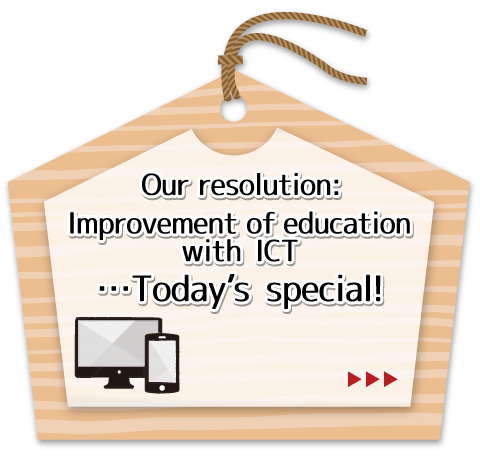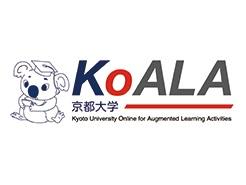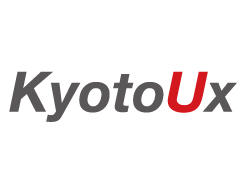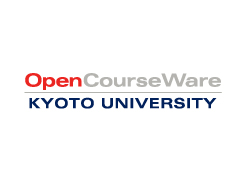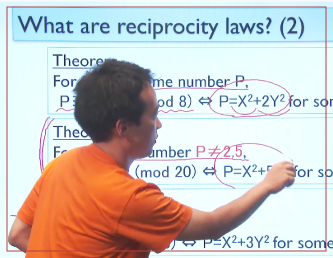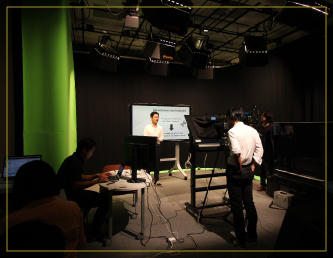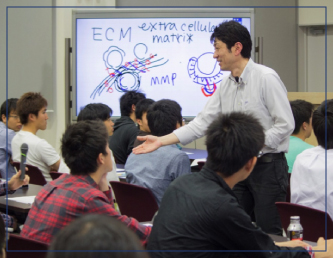Topics
Educational practices using ICT at Kyoto University
-
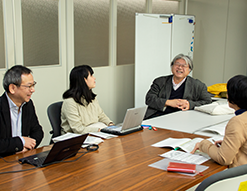
 Practice of Basic Informatics: Providing Accurate Feedbacks to
Practice of Basic Informatics: Providing Accurate Feedbacks to
a Large Number of StudentsAssoc. Prof. Sakai, Junnior Assoc. Prof. Okamoto and Prof. Kita
-
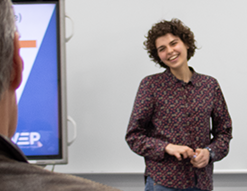
 Workshop: Expand your borders, experience Virtual Exchange!
Workshop: Expand your borders, experience Virtual Exchange!Workshop report (published on the April 12, 2021)
-
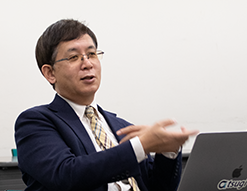
 How PandA Can Enhance On-Demand Recurrent Educational Program
How PandA Can Enhance On-Demand Recurrent Educational ProgramProf. Shoji Kajita (Institute for Information Management and Communication)
-
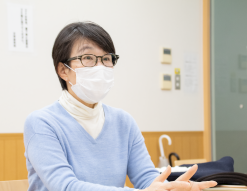
 Using an iPad to Conduct a Hybrid Class Easily and Effectively amid the COVID-19 Pandemic
Using an iPad to Conduct a Hybrid Class Easily and Effectively amid the COVID-19 PandemicProf. Chigusa Kita
(Graduate School of Letters) -
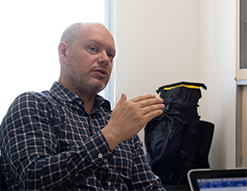
 English Writing Education Utilizing Turnitin:
English Writing Education Utilizing Turnitin:
For Preventing Plagiarism and More Proper AssessmentSenior Lecturer John William Rylander
(Institute for Liberal Arts and Sciences) -
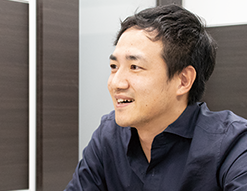
 Statistics Education from Training Professionals to Public Outreach:
Statistics Education from Training Professionals to Public Outreach:
Strengthening Civic LiteracyProgram-Specific Professor Shiro Tanaka
(Graduate School of Medicine) -
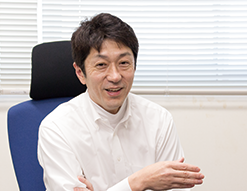
 From "Kyoto Method" to "Flipped Classroom":
From "Kyoto Method" to "Flipped Classroom":
A New edXational Strategy Spanning Overseas UniversitiesProf. Motonari Uesugi
(Institute for Chemical Research and Institute for Integrated Cell-Material Sciences (WPI-iCeMS)) -
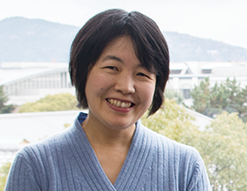
 Hands-On Practice at the Library That Empowers Students to "Step Forward"
Hands-On Practice at the Library That Empowers Students to "Step Forward"Assoc. Prof. Yumi Kitamura
(Kyoto University Library) -
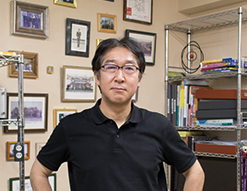
 Flipped Classroom: Respecting Individual Learning Styles
Flipped Classroom: Respecting Individual Learning StylesProf. Shuji Kaneko
(Graduate School of Pharmaceutical Sciences) -
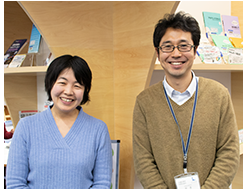
 Library Network's Efforts on Supporting Students' Individual Learning Needs
Library Network's Efforts on Supporting Students' Individual Learning NeedsAssoc. Prof. Yumi Kitamura and Mr. Taku Sakamoto
(Kyoto University Library) -
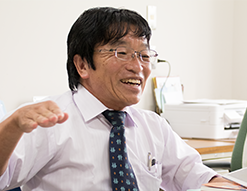
 More "Human Education" Through Electronic Textbooks
More "Human Education" Through Electronic TextbooksProf. Masaaki Baba
(Graduate School of Science) -
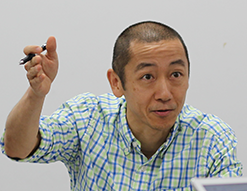
 Making Courses More Open
Making Courses More OpenProf. Ryo Yamada
(Graduate School of Medicine) -
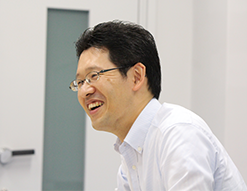
 Using Manga to Teach Bioethics in the Midst of Cultural Diversity
Using Manga to Teach Bioethics in the Midst of Cultural DiversityAssoc. Prof. Satoshi Kodama
(Graduate School of Letters) -
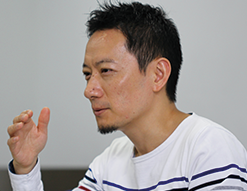
 Understanding Different Cultures Through the Lens of Service and Hospitality
Understanding Different Cultures Through the Lens of Service and HospitalityAssoc. Prof. Yutaka Yamauchi
(Graduate School of Management) -
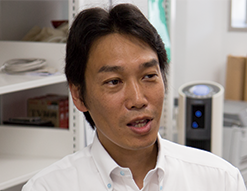
 Use of Live Comment Posting Tool in Lectures Brings Lecturer and Students in Sync
Use of Live Comment Posting Tool in Lectures Brings Lecturer and Students in SyncSen. Lecturer Hiroaki Mizuhara
(Graduate School of Informatics) -
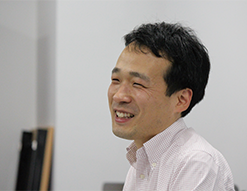
 A Mathematics Course Readily Accessible to Anyone
A Mathematics Course Readily Accessible to AnyoneAssoc. Prof. Tetsushi Ito
(Graduate School of Science) -
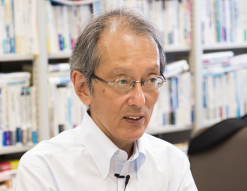
 Twitter and PandA: Transforming the Quality of Communication and Relationships
Twitter and PandA: Transforming the Quality of Communication and RelationshipsProf. Jun Yoshida
(Graduate School of Human and Environmental Studies)

Projects
OVERVIEW OF OUR EDUCATIONAL PROJECTS USING ICT

How To
STEPS FOR CREATING AND UTILIZING EDUCATIONAL CONTENT
ABOUT THIS WEBSITE
This website provides information on how to create and apply educational content using Information and Communication Technology (ICT), such as MOOC, OCW, audio-video lectures and digital resources, at Kyoto University.






What tools and resources work for you

Result!
Based on your answers,
we would like to recommend you creating your own "MOOC."
Not only can you share your achievements with the world through your MOOC but you can also use it as supplemental materials for your lectures.
Result!
Alas we cannot predict the day when a fully functional AI robot can finally replace you.
Then how about digitalizing your lectures as a "MOOC" course?
You can, for example, delve deeper into the content of your real lessons while students can obtain basic knowledge from your MOOC.
Result!
Yes! Super-intelligent robots can for sure reduce your burden around your lectures and you don't need to pay them even if you "exploit" them.
...but first, we still need few innovations to invent them.
Meanwhile, we recommend you using "PandA" for holding regular quizzes and grading the results online.
You need to learn some new skills to use it, but please give it a try!
Result!
Based on your answers,
we would like to recommend you watching lecture videos in "Kyoto-U OCW."
Kyoto-U OCW offers plenty of attractive content, such as lecture videos and handouts of other colleagues, or of international conferences held at Kyoto University. You will certainly enjoy them.
Please check Kyoto-U OCW now!
Result!
Based on your answers,
we would like to recommend you the "Topics."
We picked a wide selection of cases where your colleagues effectively used ICT in their lectures at Kyoto University.
Watching them might change your opinion on ICT!
Result!
We recommend you watching videos in "MOOC" courses, if you're interested in lectures on cutting-edge research.
You can choose attractive content from various fields online and watch lecture videos anytime anywhere for free.
Please check MOOC courses, if you don't have time to join regular courses, even though they appeal to you.
Result!
Based on your answers,
we would like to recommend you "Kyoto-U OCW".
OCW offers new ideas on how to construct your lectures, even if you only use blackboard and feel you have nothing to do with ICT (Information & Communication Technology).
We cannot deny the importance of blackboard even in the "ICT era," but if you combine it with new technology, you might open new possibilities.
First, how about taking a look at other colleagues' courses?
Result!
Haven't you experienced times when students didn't pay any attention to your lectures, even though you prepared elaborate lecture slides?
If the answer is YES, we recommend you a thought-provoking interview in "Topics", which explains how to attract attention of hundreds of students to your lecture and let no one fall asleep.
Does it sound too good to be true? Let's check it out!
Result!
If you want students to become more motivated,
we would like to recommend you the "Topics," which is full of examples on how to use ICT (Information & Communication Technology) to motivate students at Kyoto University.
With this inspiration, we are sure you can find many new ways to inspire your students .
Result!
If you feel overwhelmed by having to conduct your lectures 15 times in one semester always on time, how about consulting with us?
It's not always necessary for you to be in the classroom for your lectures.
ICT (Information & Communication Technology) enables you to give lectures from remote site, and they can be authenticated as a regular class.
Result!
Based on your answers,
we would like to recommend you watching lecture videos in "Kyoto-U OCW."
Kyoto-u OCW offers plenty of attractive content, such as videos of international conferences held at Kyoto University.
You may not only enjoy them personally but also use them professionally as a material in your own lectures.
Result!
Based on your answers,
we would like to recommend you the "Topics."
We picked a wide selection of cases where your colleagues effectively used ICT in their lectures at Kyoto University.
They can provide you new ideas on how to construct your lectures. E.g., someone applies everyday ICT tools such as "Twitter" or "2ch" for class purposes.
Result!
Based on your answers,
we would like to recommend you using "PandA" for your course management.
With our LMS (Learning Management System) PandA, you can easily share teaching materials with your students, hold regular quizzes and create an online platform where they can discuss with each other.
From these student discussions you might find out what to improve and what problems to address.
Result!
Based on your answers,
we would like to recommend you the online forum of "PandA" or "Niconico-style lectures."
With these helpful online tools you can obtain many valuable ideas from the real feedback of your students.
Wouldn't you like to give it a try?
Result!
Based on your answers,
we would like to recommend you publishing your lecture materials, such as videos or handouts, on "Kyoto-U OCW" website.
People around the world are waiting for an opportunity to start learning from your materials.
Result!
Based on your answers,
we would like to recommend you creating your "MOOC" course.
Even though people cannot yet be fully digitalized, it is possible to conduct your lectures as an online course.
This allows you, for example, to delve deeper into the content of your real lessons while students can obtain basic knowledge from your MOOC.
Result!
Based on your answers,
we would like to recommend you using "PandA" to share handouts with your students and hold quizzes online.
You can reduce clerical work before and after your lectures, such as printing handouts or grading quizzes, via the web.
Result!
Based on your answers,
we would like to recommend you reading educational portfolios of your colleagues in "MosTreasure".
You can find plentiful information about their know-how, teaching-tools and ideas for constructing lectures.
They can help you prepare for lectures starting today!
